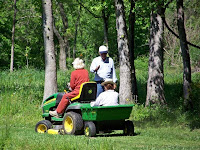Also, there were a few newly emerged common whitetails, Plathemis lydia around the edge of the pond.
I really didn't keep a "running tally" of all the odes but certainly around were common green darners, Anax junius; Eastern pondhawks, Erythemis simplicicollis; roseate skimmers, Orthemis ferruginea; great blue skimmers, Libellula vibrans and blue dashers, Pachydiplax longipennis.
A nice (and rather unusually "tame") buttermilk racer, Coluber constrictor anthricus was hands down the herp of the trip!

I think the most unexpected find however.......is depicted below. -J









